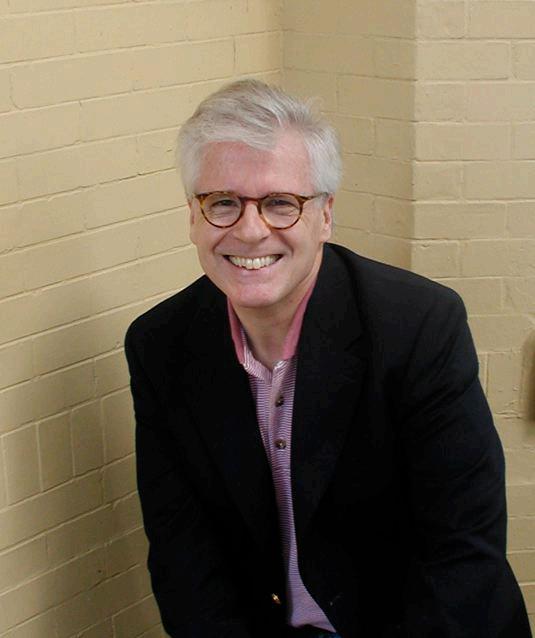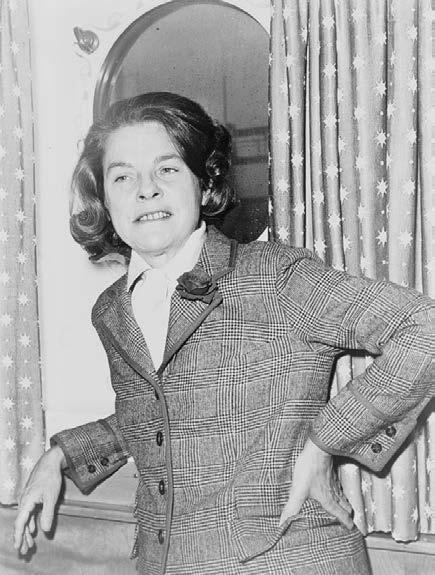
2 minute read
Welcome, Fellow Travelers

Thomas Mallon in Summer 2009.
Advertisement
The opera Fellow Travelers was adapted from the novel of the same name by the American author Thomas Mallon. Though this opera is a work of fiction, the main characters of Hawkins and Fuller, are echoes of the approximately 1,200 Federal employees, men and women, fired from the United States government for their confirmed or suspected sexual orientation, or even affiliation with those confirmed or under suspicion. Written in 2007, Mallon offered an intimate insight into the lives of gay men when their very existence was legally deemed a threat to the government.
Mallon has been applauded for his ability to write from the perspective of the historical bystander, or an ordinary person present for extraordinary historical moments. Mallon’s other works include Henry and Clara, set around the Lincoln assassination, Dewey Defeats Truman, and Watergate. Mallon remarked that he chooses to focus on the past because the cyber revolution has made us more connected than ever--to a fault--and reading about the past can be a way to revisit impactful human connection, such as Timothy and Hawkins’ romance in an era where there were no smartphones to be exposed by or hide behind.
Before receiving his Masters and Ph.D. from Harvard University in World War I poetry, Mallon completed his undergraduate thesis on American novelist and political critic Mary McCarthy (no relation to Senator McCarthy), at Brown University. Mary McCarthy, born in 1912, left the Catholic Church at an early age and became an atheist, but remained interested in Catholicism throughout her writing career. As she moved through her life, she became a critic of McCarthyism and Communism, as well as the
Vietnam War, even writing a series of essays as the war was occurring in the 1960s. Ms. McCarthy’s enduring legacy on Mallon is remarkably evident.
In the 1930s, Mary McCarthy was known as a Fellow Traveler. The term stems from a Russian writer, Poputchik, who was not against the Russian Revolution that was led by the communist-thinking Bolsheviks, but deliberately chose not to write propaganda or fight on the front lines. Interestingly, the Soviet Union allowed these types of indifferent writers and artists flourish, with the belief that someone had to fill the gap until art led by the proletariat (working class) would eventually emerge and replace bourgeois (ruling class) art. Later, the term (with its Russian roots) was used in the United States to identify a person who did not actively designate themselves a member of the Communist Party, but sympathized with its ideas and goals.
Thomas Mallon has written ten works of fiction, as well as numerous essays and columns for publications such as The New Yorker and the New York Times. He currently lives in Washington D.C. and teaches English at George Washington University. Out of all of his work, he made this note on the character of Timothy from Fellow Travelers “When I started to make notes on him, the first thing I put down was ‘Date of birth: November 2, 1931’– exactly twenty years earlier than mine. I realized that in some ways I was going to be writing about what my own life might have been like had I been born two decades earlier.” With this admission, it is Mallon himself who comments on the progress we have made as a society since the Cold War. However, his novel, as well as the adaptation into an opera remain all too relevant. 2019 is a moment of fear and persecution, LGBTQ+ citizens are still victims of hate crimes and unfair legislation, not unlike the 1950s. Fellow Travelers may offer a reminder of the progress we still have to make, and the human impact of blind fear.

Mary McCarthy. New York World Telegram and Sun. Library of Congress. 1963.



